In recent years, science has unveiled a powerful connection between mental health and physical health—particularly through the gut-brain axis. For those who suffer from treatment-resistant anxiety, this emerging area of research is not just intriguing—it may hold the missing link to deeper, more lasting relief. While traditional therapy and medication are foundational, new insights into gut health and systemic inflammation reveal a more complex biological picture of anxiety. At Foundations Group Behavioral Health, we explore how these biological mechanisms can influence treatment outcomes, and how integrating gut-focused care may support long-term recovery.
What Is Treatment-Resistant Anxiety?
Treatment-resistant anxiety is a clinical term used when a person continues to experience moderate to severe symptoms despite engaging in standard treatments like talk therapy, medication, or basic lifestyle changes. These individuals may have tried multiple medications or therapy modalities with limited or temporary relief. For clinicians and clients alike, this experience can be frustrating and discouraging, especially when effort and commitment are high.
While the label “treatment-resistant” implies failure of mental health interventions, it’s increasingly clear that the issue may lie in unaddressed root causes—many of which stem from the body, not just the mind.
Understanding the Gut-Brain Axis
The gut-brain axis refers to the bidirectional communication between the gastrointestinal tract and the central nervous system. This system is governed by multiple pathways: the vagus nerve, the immune system, and microbial metabolites created by the trillions of microorganisms in the gut.
When the gut is inflamed, leaky, or imbalanced in terms of microbiota, it can send pro-inflammatory and stress signals to the brain. These signals can affect neurotransmitter production, stress regulation, mood, and ultimately, the intensity and duration of anxiety symptoms. This isn’t just a theory—multiple studies have shown that individuals with chronic anxiety or depression often have disrupted gut microbiomes and signs of systemic inflammation.
Chronic Inflammation’s Role in Anxiety
Inflammation is the body’s natural response to threats, but chronic low-grade inflammation—especially when triggered by poor diet, stress, environmental toxins, or infections—can have detrimental effects on the brain.
Cytokines (inflammatory markers) can cross the blood-brain barrier and alter the way neurotransmitters like serotonin, dopamine, and GABA are processed. These are the very chemicals that regulate mood and anxiety. In people with treatment-resistant anxiety, evidence increasingly shows elevated levels of inflammatory markers that are not being addressed through traditional therapy alone.
This may explain why some clients feel “stuck” even after years of counseling—they are working on emotional processing while unknowingly living with inflammation that constantly reactivates their anxiety responses.
The Microbiome and Mental Health
A healthy microbiome—the community of bacteria, viruses, and fungi in the gut—is essential for mental wellness. Certain bacterial strains produce neuroactive compounds that can reduce anxiety and enhance focus. Others support the gut lining, which prevents inflammatory substances from leaking into the bloodstream.
In individuals with dysbiosis (an imbalanced microbiome), harmful bacteria can outnumber beneficial strains. This imbalance can create a cascade of issues, including nutrient malabsorption, immune dysregulation, and elevated cortisol levels—all of which worsen anxiety symptoms.
Nutrition, antibiotics, chronic stress, and even birth delivery method can influence the gut’s microbial makeup. For clients whose anxiety resists psychological intervention, restoring microbial balance may be an essential step toward healing.
Dietary and Lifestyle Factors That Influence Anxiety
The modern Western diet is rich in processed foods, sugar, and additives that are known to increase inflammation and disrupt gut health. Poor sleep, high-stress environments, and sedentary lifestyles only compound these effects.
In clinical settings, integrative therapists often recommend anti-inflammatory diets, omega-3 fatty acids, fermented foods, and probiotics as adjunctive supports for anxiety. While these may seem simple on the surface, their cumulative effect can be profound—particularly for individuals whose anxiety is tied to physiological imbalances.
Foundational changes to sleep, hydration, and movement also help regulate the gut-brain axis. This is why anxiety treatment that fails to address the physical body may leave people plateaued despite effort and therapy.
The Limits of Talk Therapy Alone
Therapy is an essential tool in mental health care, but it isn’t designed to correct nutritional deficiencies, reduce inflammation, or rebalance hormones. A person struggling with insomnia, gut discomfort, or chronic fatigue may have their anxiety worsened by physical issues that therapy cannot directly resolve.
For example, someone undergoing Cognitive Behavioral Therapy in Massachusetts may develop excellent cognitive coping skills, but still experience panic and restlessness due to undiagnosed gut inflammation. Without a systems-level approach, progress remains limited.
This does not mean that therapy isn’t effective—it means that therapy alone may not be enough for certain individuals. Addressing the underlying biology is often what makes therapy finally “click.”
The Role of Integrative Treatment Approaches
Integrative mental health care is a model that combines traditional therapy and medication with holistic strategies like nutrition, supplementation, stress reduction, and body-based practices. These approaches recognize that anxiety is a multifactorial issue and requires individualized solutions.
Clients engaged in an Outpatient Mental Health Therapy Massachusetts program may find additional support by incorporating functional testing (such as microbiome analysis), nutritional counseling, or mindfulness-based movement like yoga or tai chi.
Clinics that recognize the role of inflammation and gut health often work alongside dietitians, primary care physicians, and naturopathic doctors to build comprehensive care plans. This collaboration strengthens outcomes for people who have not responded to conventional treatment alone.
Mind-Body Practices That Support Gut Health
One of the lesser-discussed but highly effective strategies for managing inflammation and gut health is nervous system regulation through somatic and breath-based practices. Deep diaphragmatic breathing, for instance, activates the parasympathetic nervous system, which promotes digestion and reduces cortisol levels.
Integrating Dialectical Behavior Therapy in Massachusetts—with its emphasis on mindfulness and distress tolerance—can also be particularly helpful for those with gut-related anxiety, as it teaches clients to listen to and regulate bodily cues without panic.
Other helpful practices include meditation, gentle stretching, and time in nature. These are not replacements for clinical care, but they are powerful allies in restoring nervous system balance and reducing the physiological drivers of anxiety.
Tailoring Care in Structured Settings
For individuals with more severe or treatment-resistant symptoms, a structured setting such as a Psychiatric Day Treatment Program Massachusetts can provide the level of intensity needed to stabilize symptoms while addressing both mind and body.
In these programs, clients often receive a blend of therapy modalities, medical oversight, and structured routines that support lifestyle change. When paired with inflammation-focused care, day treatment can offer a breakthrough for individuals who’ve spent years struggling with anxiety that no longer responds to standard care.
Foundations Group Behavioral Health supports these integrative pathways by recognizing the biological underpinnings of mental health conditions and adapting treatment to each individual’s needs.
Why Choose Us
As a trusted Behavioral Health Treatment Center Massachusetts, Foundations Group Behavioral Health is committed to offering comprehensive, integrative care that goes beyond symptom management. We believe that treatment-resistant anxiety requires more than talk—it requires innovation, compassion, and a whole-body approach. Our clinicians are trained in advanced therapeutic techniques and collaborate with providers across disciplines to create a plan that works for you.
Conclusion
The link between gut health, inflammation, and anxiety is more than a passing trend—it’s a paradigm shift in how we approach mental health. For those who feel stuck in their recovery journey, understanding these physiological influences could be the key to unlocking real, lasting change. At Foundations Group Behavioral Health, we believe in treating the whole person—mind, body, and spirit. Whether you’re stepping into an Anxiety Treatment Program Treatment Massachusetts or exploring integrative support for the first time, we’re here to walk with you.
Call us today at (833) 986-2594 to begin your journey toward full-body mental wellness.
Frequently Asked Questions (FAQs)
1. What is treatment-resistant anxiety?
Treatment-resistant anxiety refers to persistent anxiety symptoms that do not improve with standard treatments such as therapy or medication, often requiring a more integrative approach.
2. How does gut health impact mental health?
Gut health influences the brain through the gut-brain axis. An imbalance in gut bacteria or inflammation can affect mood, increase stress hormones, and worsen anxiety symptoms.
3. Can improving gut health help reduce anxiety?
Yes, improving gut health through diet, probiotics, and anti-inflammatory strategies can support reduced anxiety, especially in cases where traditional treatments have not worked.
4. What role does inflammation play in anxiety?
Chronic inflammation can alter brain chemistry, increasing the likelihood of anxiety and mood disorders by disrupting neurotransmitters like serotonin and dopamine.
5. Are there specific therapies that address both mental and physical health?
Yes, integrative approaches within programs like psychiatric day treatment and outpatient therapy combine psychotherapy with lifestyle and dietary interventions to treat both body and mind.








